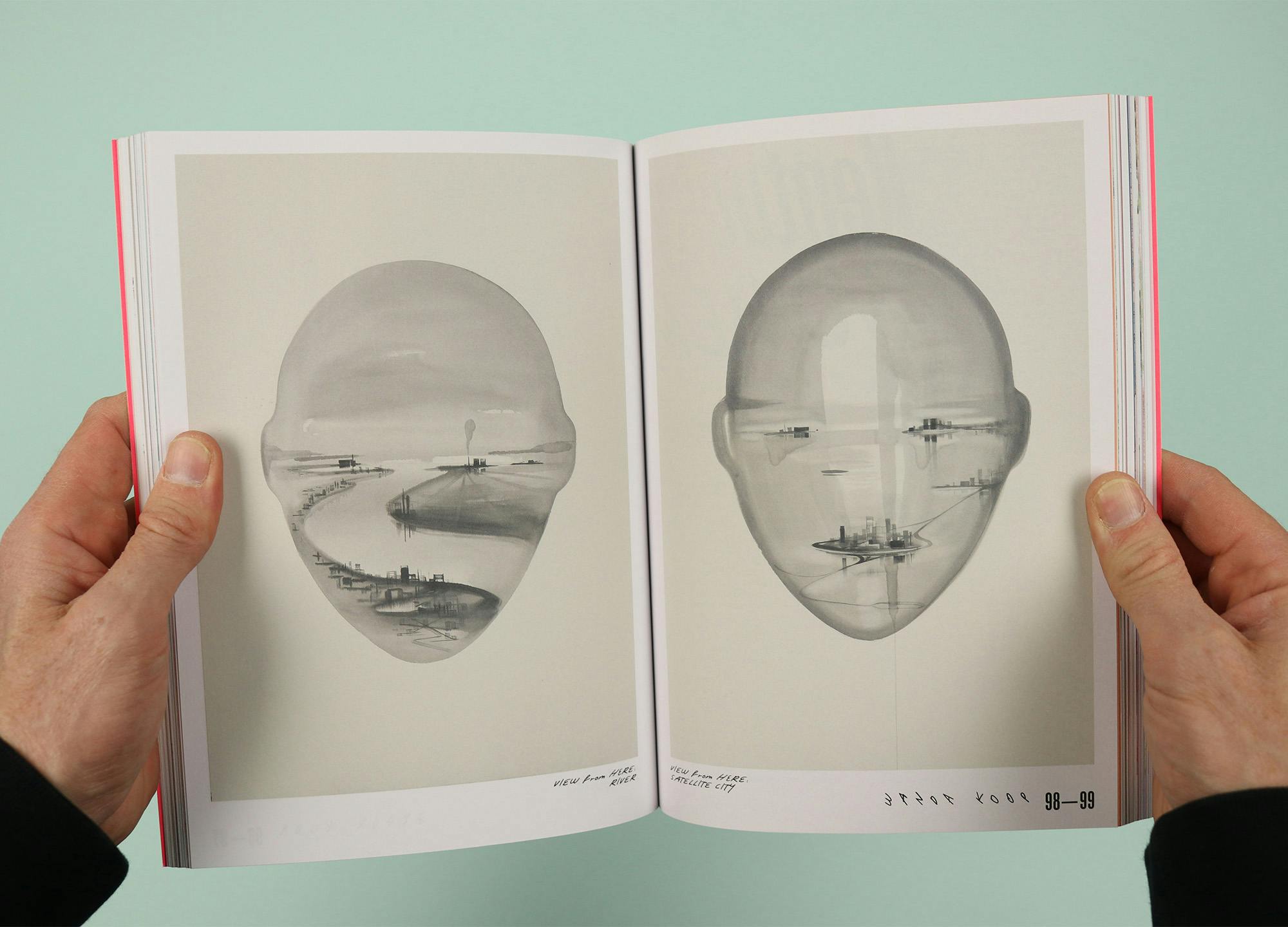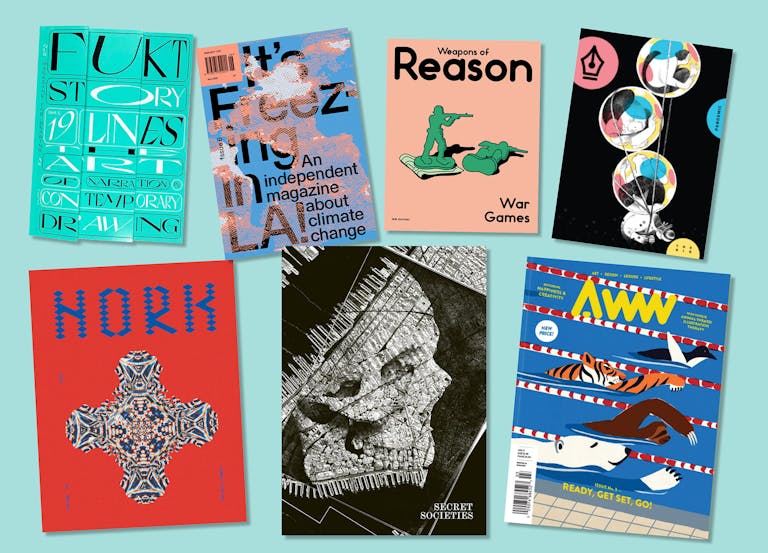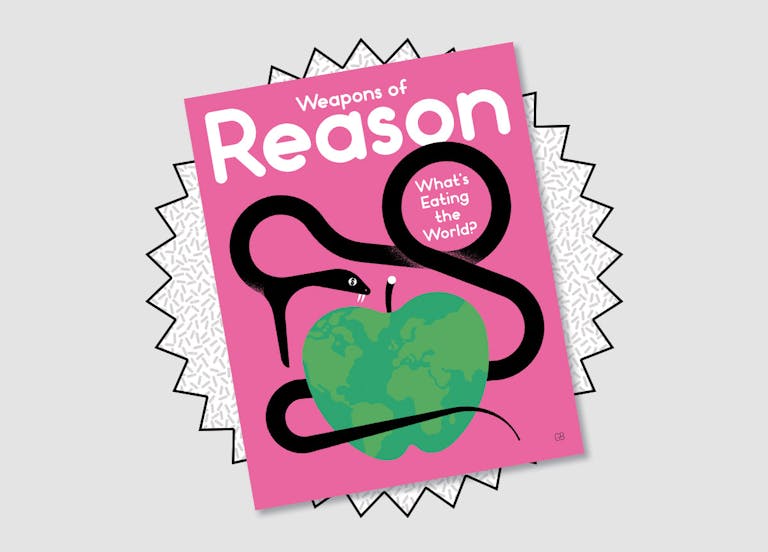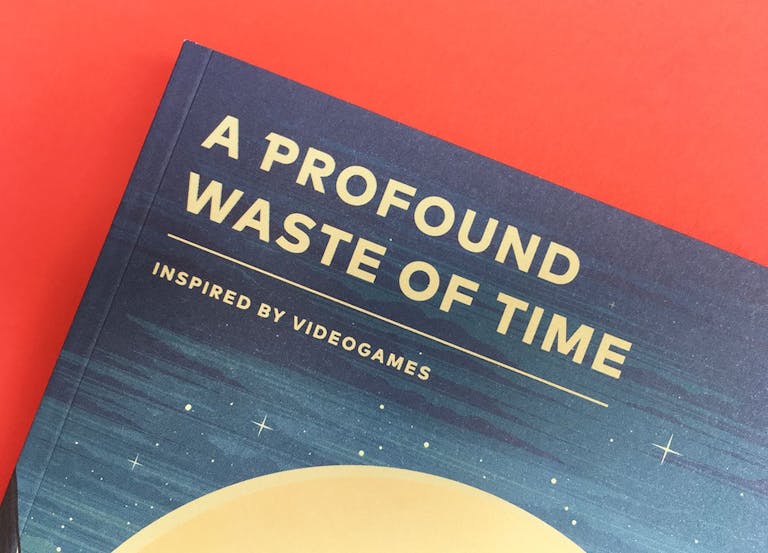Abstract faces smile out of Fukt
The new issue of Fukt is themed ‘The Faces Issue’, and it opens with a quote from British neurologist and writer Oliver Sacks on the power of the face: “Though we may admire arms and legs, breasts and buttocks, it is the face, first and last, that is judged ‘beautiful’ in an aesthetic sense, ‘fine’ or ‘distinguished’ in a moral or intellectual sense. And, crucially, it is by our faces that we can be recognised as individuals.”
Sacks knew this better than most, because he suffered from prosopagnosia, a condition that makes it difficult to recognise or memorise a face. His 1985 book The Man Who Mistook His Wife for a Hat describes the case histories of his patients, who suffered from ‘face blindness’, and he was instrumental in raising awareness of the condition.

It remains relatively unknown today, and Fukt explores the condition further by interviewing Carlotta, a German artist who suffers from prosopagnosia. Her self-portraits are deliberately abstracted, made by touching her face with one hand and using the other hand to draw what she feels on a sheet of paper, which has been placed over a printing block, so it’s only when the sheet is lifted off the block that her mirrored image can be seen. She describes this as reflecting the impossibility of her condition – she constantly seeks but knows she will never succeed, producing work, “which finally plunges the viewer into the same confusion (or alienation) that I experience every day when I am among people.”
I think Fukt’s interest in prosopagnosia stems from the ways in which facial recognition empowers artists: Most people will never stop to wonder why they find the arrangement of eyes, nose and mouth so compelling and distinctive, and that leaves a huge amount of space for abstraction and experimentation. These basic elements can be manipulated and rearranged in almost infinite formations, and throughout the issue Fukt presents a range of artworks that push the definition of what could be considered a face.
For example there are the sexual, abstract assemblies of eyes, noses and mouths in Balint Zsako’s paintings.
Or the sparse, lonely landscapes by Wanda Koop, which bring to mind one of Carlotta’s thoughts: “My definition of a face is different from that of my fellow human beings. For me, a face is something that has a head shape. What happens inside this shape is completely irrelevant for me.”
The intricately detailed drawings by Ofobuike Okudoh carry an almost elemental sense of chaos and disorder.
And Skye Volmar’s puckering, bulging compositions are inspired by, “the smeared remnants of makeup wiped from her face”, and reflect upon, “her experience as a racialized Black woman in the United States.”
I think it’s in these more abstract, more unusual images that Fukt is at its most interesting, exploring and expanding upon our understanding of what a face actually is, and revealing to us the overlooked superpower of facial recognition that most of us carry around with us.



















